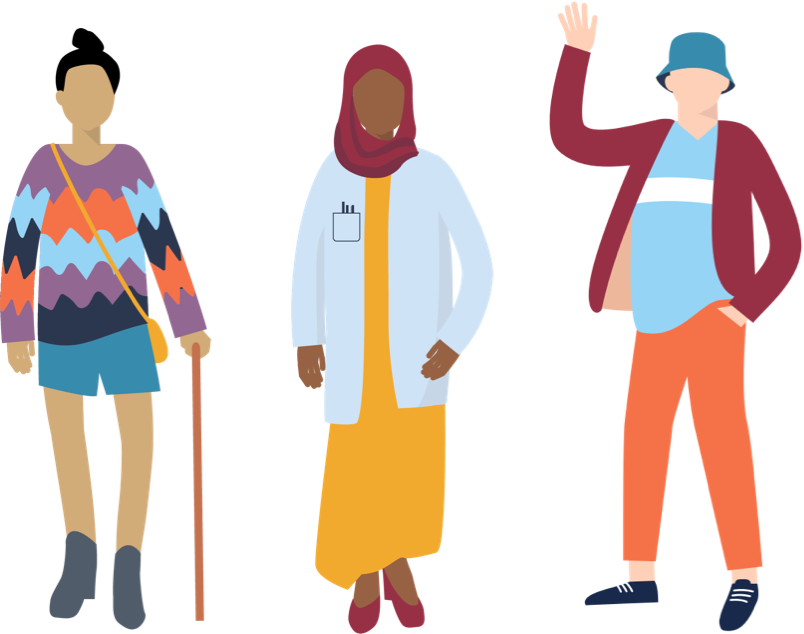What is the Atlas of MS?
The Atlas of MS is the most comprehensive worldwide study of the epidemiology of MS and the global availability and accessibility of resources for people with MS.

years is the global average age of an MS diagnosis. Data is not available on the age of diagnosis for this country.
of people with MS are women.
people are living with MS. This equates to 1 in every 1,000 people.
people under 18 years are diagnosed with MS in the 55 countries that were able to provide pediatric data. Information on pediatric MS is not available for this country.
people are diagnosed with MS across the globe each day - that's one person every 5 minutes. Data on the number of people diagnosed each year are not available for this country.
* number based on 75 reporting countries
of people across the globe are initially diagnosed with relapsing-remitting MS. 12% have progressive MS at diagnosis and for 3% the type is unknown at diagnosis. Data on the type of MS people have at initial diagnosis is not available for this country.
neurologists who specialise in MS across the globe. This means globally there is 1 MS neurologist for every 153 people with MS. There is no data for the number of neurologists who specialise in MS for the country.
nurses who specialise in MS across the globe. This means globally there is 1 MS nurse for every 416 people with MS. There is no data for the number of nurses who specialise in MS for the country.
In the Atlas of MS we categorise on-label DMTs into three classes: moderate efficacy, good efficacy and high efficacy. Countries should aim to have access to a range of DMTs so that people with MS have options to suit their disease course and individual circumstances.

















 Off-label DMTs are not used in this country as no one officially diagnosed with MS
Off-label DMTs are not used in this country as no one officially diagnosed with MS


The Atlas of MS is the most comprehensive worldwide study of the epidemiology of MS and the global availability and accessibility of resources for people with MS.
The data shows that the number of people with MS across the globe has increased from 2.3 million in 2013 to 2.8 million in 2020 and 2.9 in 2023. It highlights the many barriers and inequalities that people with MS face in accessing diagnosis, treatment and care. Download the reports to see the full findings and recommendations or download the full dataset if you would like to conduct your own analysis comparing multiple countries.
The information in the Atlas of MS can be a powerful advocacy tool, shining a spotlight on MS and raising awareness of the lack of adequate resources available to diagnose, inform, treat, rehabilitate and support people with MS worldwide.
The Atlas of MS relies on data supplied by MS organisations from around the world. We are most grateful to the country coordinators and their colleagues for taking the time and effort to gather the information and data.

This 3rd edition of the Atlas of MS shines a spotlight on the barriers to accessing diagnosis and disease modifying therapies around the world. These issues are particularly evident in low and middle income countries but high income countries are not exempt. This report highlights the need for major policy changes to ensure early diagnosis and improved access to a range of treatments, to guarantee the best possible outcomes for people with MS. Information from the Atlas of MS should be used to guide policy-makers, health planners and specialists, in order to close the gaps in care, decrease inequities globally and provide a better future for people with MS and their families.
Professor Mai Sharawy
Professor of Neuro-Ophthalmology at Cairo University – Egypt.
Founder of MS Care and Chair of MSIF Board